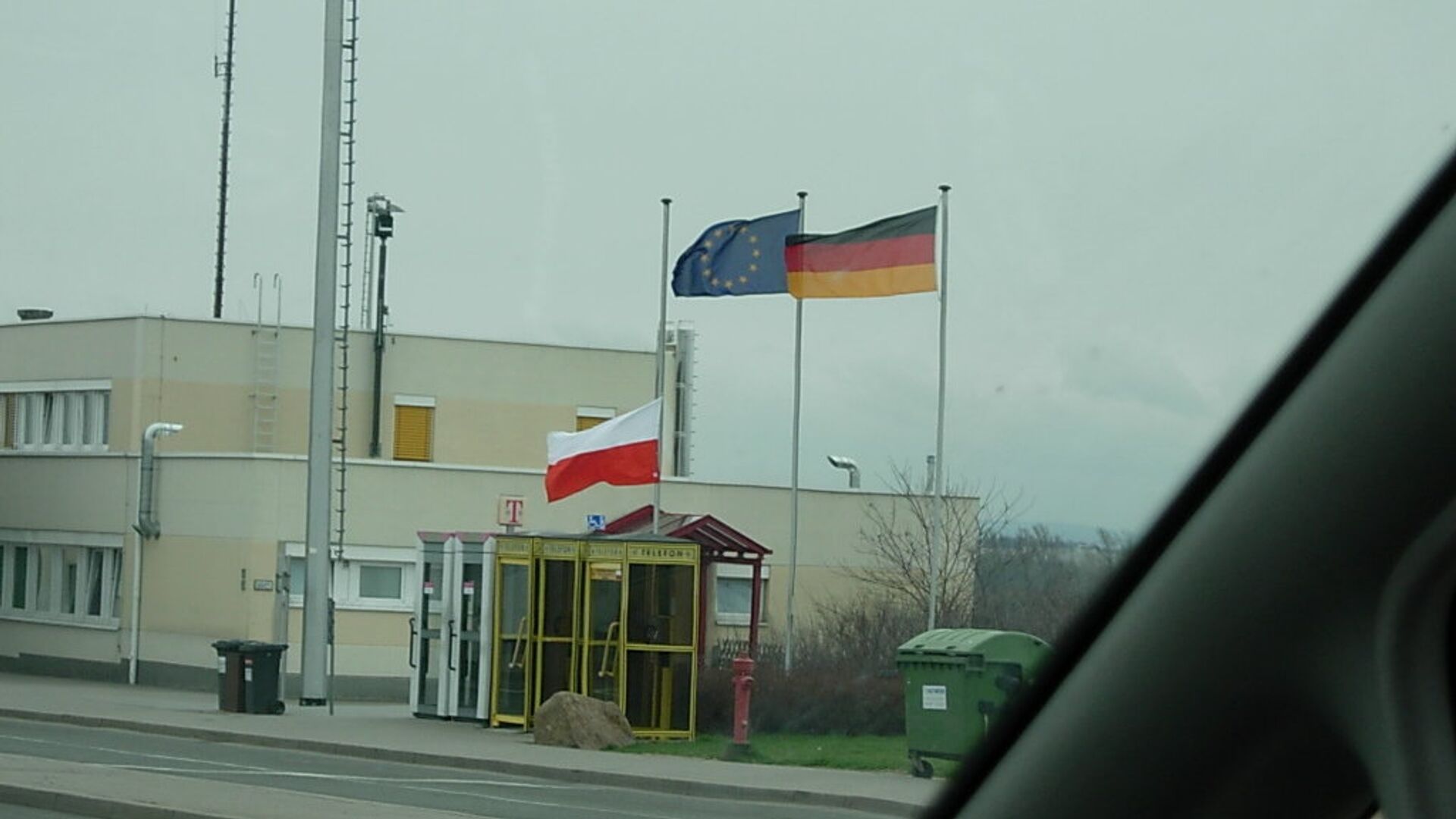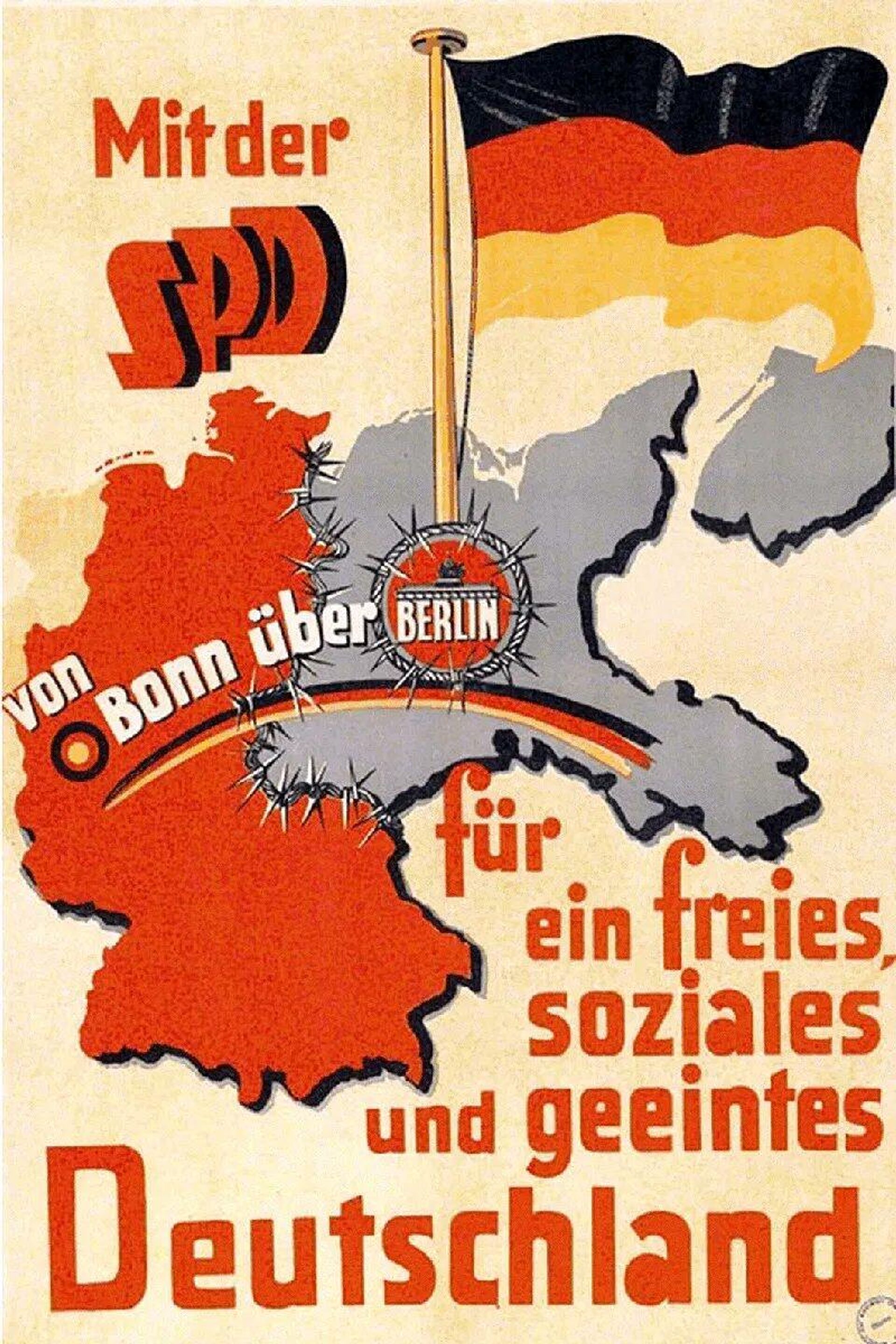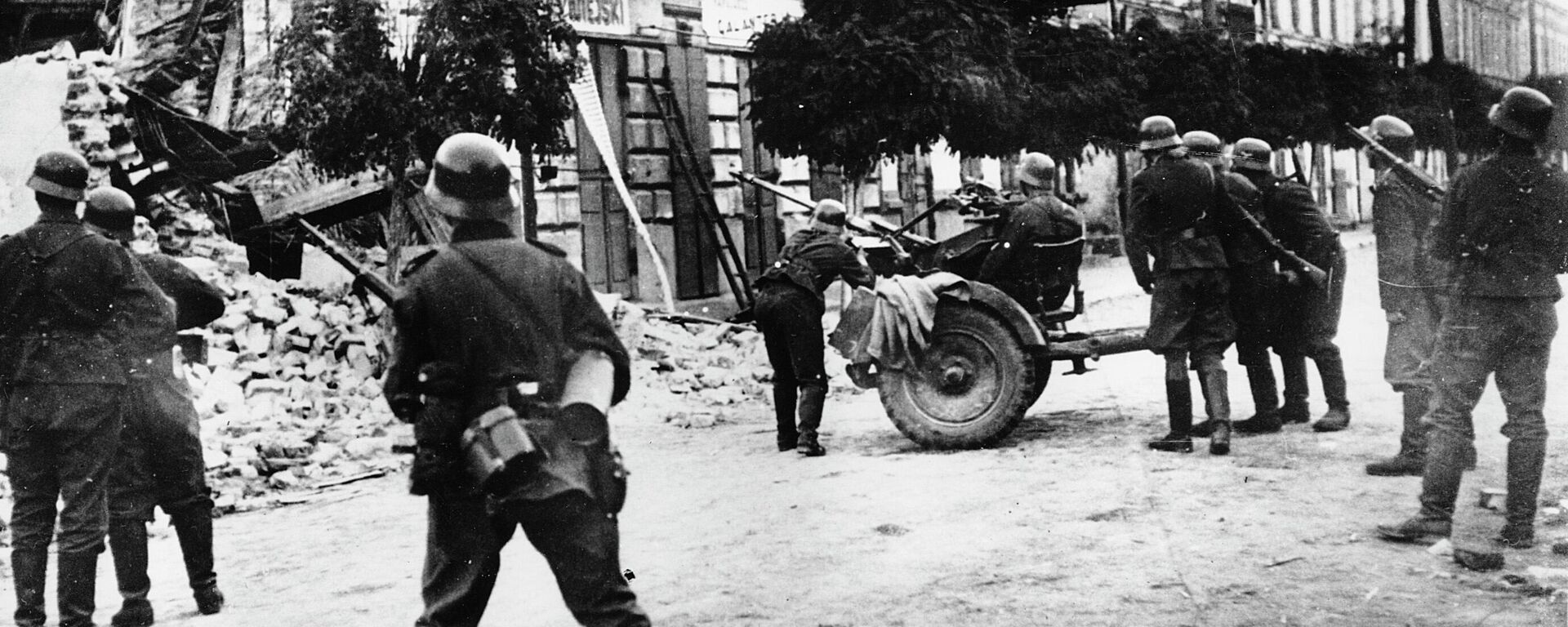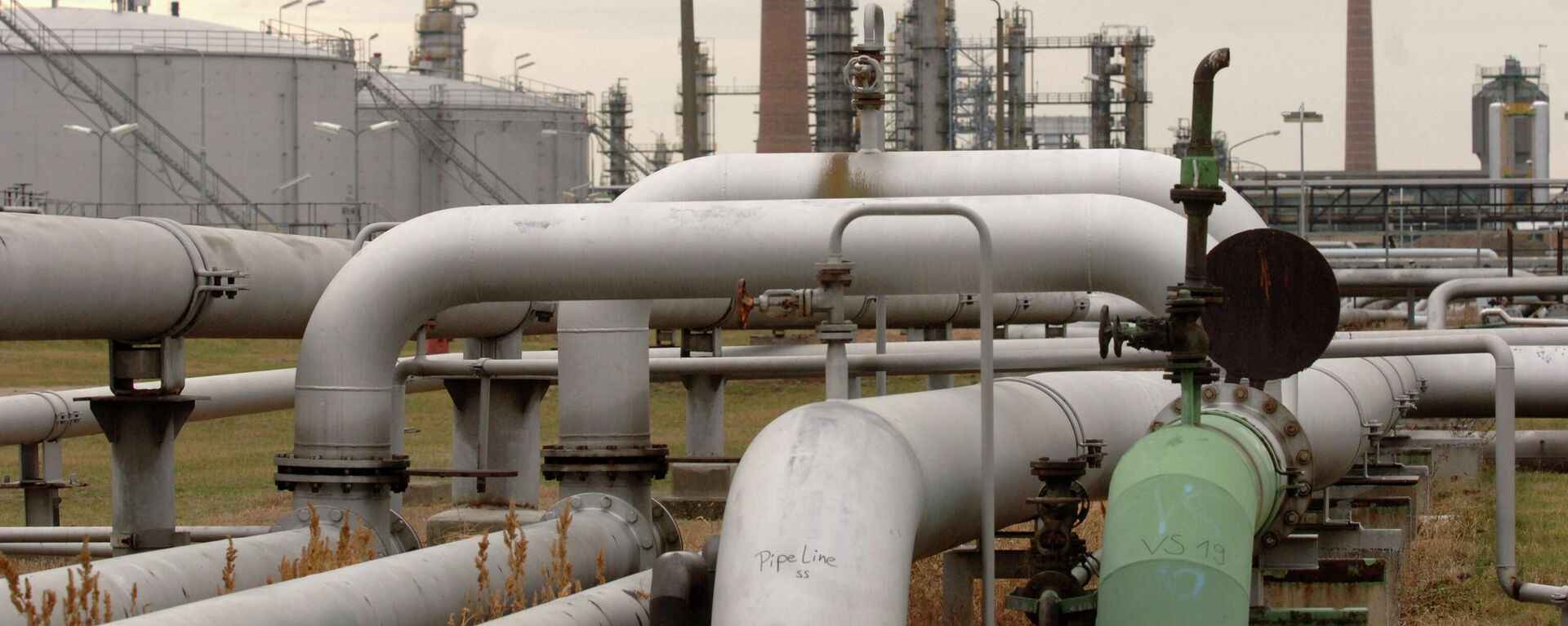Polish Media Accuses Berlin of Seeking to Revise Border Amid Warsaw’s WWII Reparations Demands
12:55 GMT 16.09.2022 (Updated: 15:19 GMT 16.09.2022)

© Flickr / John (Miś) Beauchamp
Subscribe
The Polish government is demanding 6.2 trillion Polish zlotys ($1.3 trillion) in war reparations from Germany to compensate for the material destruction caused by the Third Reich’s invasion of Poland during World War II. Berlin has balked at the demands, saying the issue is “closed” and that sufficient compensation has already been paid.
German Chancellor Olaf Scholz sparked a political spat with Warsaw after mentioning his country’s border with Poland, with Polish media accusing him of trying to revise the frontier.
“In the presence of Donald Tusk, Olaf Scholz is threatening Poland and threatening to revise the borders,” Telewizja Polska reported, posting a clip from a speech given by the chancellor in Potsdam on Thursday at a media awards ceremony.
“Looking at [former Polish Prime Minister] Donald Tusk, I would like to say how important the agreements concluded by [former West German Chancellor] Willy Brandt were on the border between Germany and Poland being established forever after hundreds of years of history,” Scholz said. “And I would not like to see some people rummage through history books to introduce revisionist border changes,” the chancellor added.
Brandt, who served as chancellor from 1969 until 1974, signed a treaty with Warsaw in 1970 accepting the boundaries between Poland and East Germany. East Berlin and Warsaw signed a demarcation treaty 20 years earlier, in 1950, but successive West German governments and virtually all of West Germany’s political parties spent several decades after the Second World War rejecting the post-war borders and demanding the return of German lands lost to Poland and the Soviet Union.

1949 West German election poster from the SPD (Olaf Scholz's party) showing a map of Germany including boundaries stretching deep into Poland and the Soviet Union.
© Photo : Dr. Nisrine Rahal
'Devil in Vestments'
Warsaw interpreted Scholz’s speech as a threat, with Prime Minister Mateusz Morawiecki taking to Twitter to attack the chancellor.
“When I look at the speech in Potsdam, it reminds me of the saying ‘The devil has dressed himself in vestments and is ringing for Mass,’” Morawiecki wrote.
Arkadiusz Mularczyk, a member of Poland’s governing Law and Justice party (PiS), pro-reparations activist, and Council of Europe Parliamentary Assembly vice-president, also slammed Scholz.
“For many decades, the successive governments of Germany have been threatening Poles with the revision of borders in the event of raising reparations. So Mr. Olaf Scholz’s comments are nothing new. I was really hoping for a more inventive and clever answer,” Malarczyk tweeted.
Scholz’s supporters and PiS’ opponents mobilized to defend the politician, suggesting that what the chancellor was actually talking about was “the immobility of borders” as a “fundamental principle,” and accusing Polish media and PiS of deliberately taking his comments out of context.
Reparations Spat
The dispute comes amid tensions between Berlin and Warsaw over reparations. On September 1, on the 83rd anniversary of the start of the Second World War, PiS announced that it would be demanding compensation from Germany to the tune of $1.3 trillion, with this figure said to represent the damages Poland incurred during the Nazi occupation.
German Foreign Ministry spokesman Christopher Burger rejected the demands, saying the issue was “closed from the point of view of the federal government.”
“Poland long ago, in 1953, waived further reparations and has repeatedly confirmed this waiver,” the spokesman said. “This is a significant basis for today’s European order. Germany stands by its responsibility for World War II politically and morally.”
PiS rejected the waiver, claiming Warsaw had been pressured into abandoning its reparations demands by the USSR, and saying that the compensation paid by Bonn to survivors of Nazi medical experiments and certain categories of pensioners were not enough. Germany also paid out about $8 billion in additional reparations in the 1990s, and Berlin and Vienna jointly paid additional funds to victims of Nazi slave labor from the mid-1990s to the mid-2000s.
The Polish governing party began making new reparations demands in 2017. In July, PiS leader Jaroslaw Kaczynski called on Warsaw not to back down and not to give in “without asking anything in return because it always ends badly.”
Polish authorities have also demanded war reparations from Russia, with President Andrzej Duda telling reporters Thursday that he “didn’t see any reasons why we shouldn’t demand this.”
“Germany started World War II and attacked Poland. Of course, Russia joined this war later on and so in my view, we should demand reparations also from Russia,” Duda said.
Moscow has yet to respond to the fresh reparations demands, but Russian lawmakers previously balked at the claims, reminding their Polish counterparts that the Red Army liberated Poland during the war and restored the country’s status as a sovereign nation in the international community, and helped it ensure its current western borders with Germany. Soviet and Polish People’s Army forces jointly fought the Wehrmacht to Berlin, with troops from both countries planting flags on the Reichstag in May of 1945.



